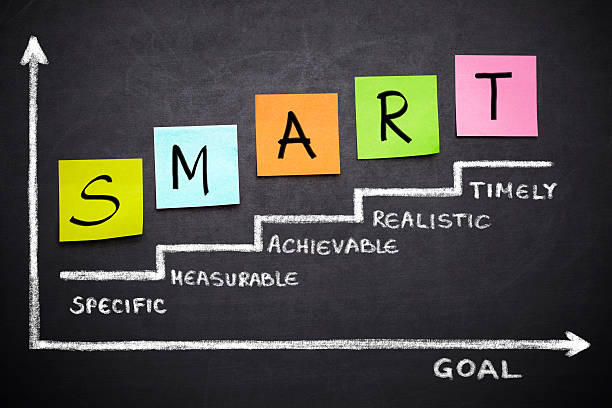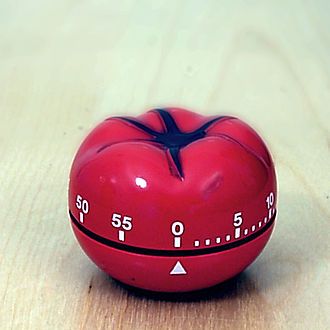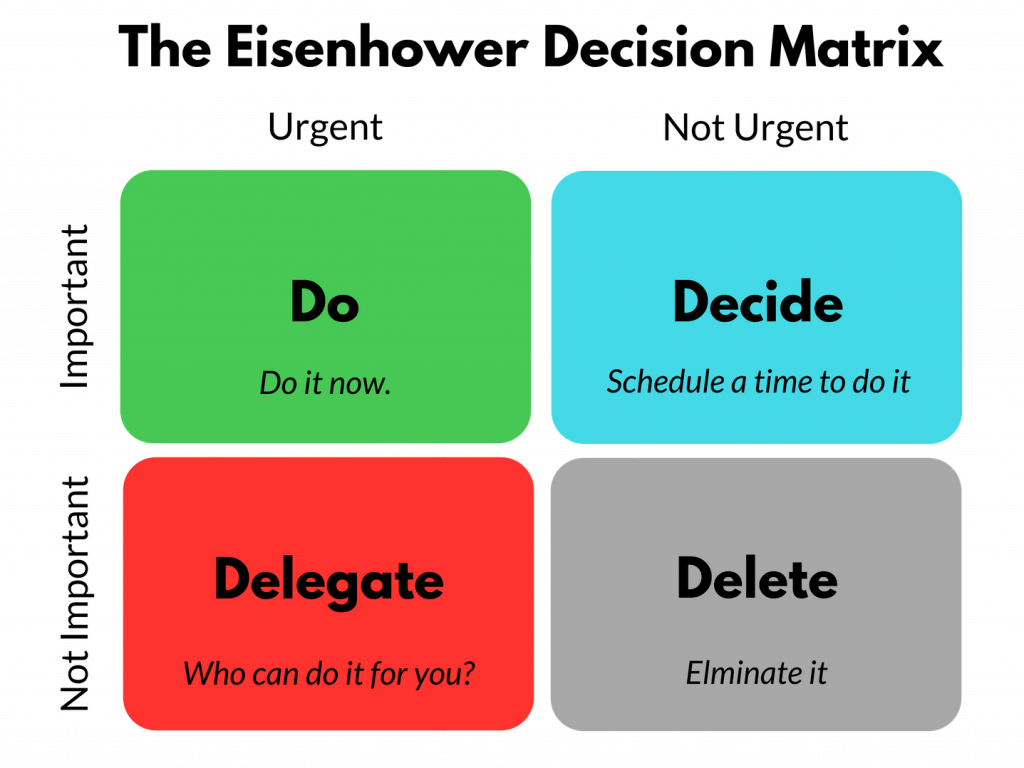Time Management Optimization- A few thoughts
Effective time management is hard enough for most people but with increasingly busy schedules as one progresses up the Corporate Ladder, it can be difficult to prioritize tasks and deploy your time effectively. However, there is a body of research that has shown that effective time management can indeed lead to increased productivity, reduced stress, and improved overall well-being. Thus it kind of becomes imperative that the working professional look close at time management as part of an overall approach to career and work.
Here I will highlight some strategies for optimizing time management, drawing on research and studies in the field. Some if not most of these may seem like common sense to all of us but perhaps that says something about what seems to be a difficult thing to do.
- Set Goals and Priorities

A key component of effective time management is setting clear goals and priorities. When you have a clear understanding of what you want to achieve, you can better plan and allocate your time. Studies have shown that goal setting is an effective way to increase motivation and productivity, as well as to improve overall well-being (Locke & Latham, 2002). It’s simple, I find it reassuring to see my goals listed down somewhere. I’m not sure of others but doing this makes it feel like I remove the "emotion" attached to these goals and transfer it to the writing. One feels lighter and less stressed noting things down. Whether it be tasks at work or any other activity where a decision has to be made.
However, it is essential to set specific, measurable, and achievable goals. For example, rather than setting a goal to "work on project X," set a goal to "complete task Y of project X by Friday at 5pm." This act prevents us from procrastinating since we can no longer hide behind vague definitions of work. If something that you wrote down isn’t done, then it isn’t done. Plain and simple. Setting specific and measurable goals leads to easy tracking of these goals and does wonders for motivation.
In addition to setting goals, it's important to prioritize tasks based on their importance and urgency. One study found that prioritizing tasks based on importance led to increased productivity and satisfaction (Demir, 2018). This might involve using a to-do list (I would highly recommend beginners to use the Microsoft to Do App https://play.google.com/store/apps/details?id=com.microsoft.todos) or calendar to keep track of tasks and deadlines, and regularly revaluate priorities to ensure that you're focusing on the most important tasks.
2. Time-Blocking
Time-blocking is a popular time management technique that involves scheduling your day in blocks of time. By assigning specific blocks of time to tasks, you can better manage your time and avoid distractions. Research has shown that time-blocking can be an effective way to increase productivity and reduce procrastination (Mishra, Akman, & Mishra, 2019).
To use time-blocking, start by identifying the tasks that you need to complete each day. Then, assign each task a specific block of time. For example, you might block out 9am-10am for checking and responding to emails, 10am-11am for a team meeting, and so on. It's important to be realistic about how long each task will take, and to build in breaks and rest periods to avoid burnout. This is essentially what most of us would do during our school and college days while studying for various exams.
3. Eliminate Distractions
Distractions are a major obstacle to effective time management. Whether it's social media, email notifications, or a chatty co-worker, distractions can derail your focus and make it difficult to stay on task. Research has shown that distractions can significantly impact productivity, with one study finding that it takes an average of 23 minutes to return to a task after being interrupted (Baumeister, Masicampo, & Vohs, 2011).
The healthy thing would be to identify what truly distracts you. Chatting with co-workers may be a great stress reliever for most but I’m pretty sure one would enjoy Instagram more after work rather than spend time on it during work. To eliminate distractions, start by identifying the sources of distraction in your environment. Then, take steps to reduce or eliminate them. For example, you might turn off your phone notifications during work hours, use noise-cancelling headphones to block out noise, or work in a quiet space where you won't be interrupted. It's also important to understand if multitasking is something you can do effectively since it can be a major distraction in and of itself. Not everyone can multitask and contrary to what people thing, solving tasks sequentially is something that many successful professionals do. The logic being that when you try to do too many things at once, you're likely to make mistakes and take longer to complete each task. Instead these professions also focus on one task at a time and give it their full attention and then move to the next task post completion. But again do remember that is a highly subjective argument
4. Delegate Tasks

Delegation is an important time management skill that can help you free up time for more important tasks. This may be difficult to many as they move up in position since they have spent many years doing the grunt work. However, this becomes essential when one starts entering middle and upper managerial positions. When delegating tasks, start by identifying tasks that can be done by someone else. Then, delegate those tasks to someone who is capable of completing them. This might involve assigning tasks to colleagues or outsourcing work to contractors or freelancers.
Delegating tasks not only frees up time for more important work, but it also allows you to focus on your strengths and areas of expertise. One study found that delegation can improve job satisfaction and reduce stress (Huang, Law, & Wang, 2019). However, it can’t be overstated that it's important to delegate effectively by clearly communicating expectations and providing support and resources as needed. Otherwise you just end up with a team of disgruntled juniors and peers.
5. Take Breaks and Rest Periods
The legendary tactic of work for 30 minutes and take a break for 3 hours while in college comes to mind here. But while it seems counterintuitive, taking regular breaks and rest periods can actually improve productivity and time management. Research has shown that taking breaks can help to reduce stress, improve creativity, and boost focus (Levine & Waite, 2017).
To take effective breaks, start by scheduling short breaks throughout the day. This might involve taking a quick walk outside, stretching, or practicing mindfulness or meditation. It's also important to take longer breaks and rest periods as needed, such as taking a vacation or mental health day. However, for the most part, even a 10 minute break every hour or two should be sufficient. It’s probably why those 4 pm chai breaks with colleagues feels so damn good.
By taking regular breaks and rest periods, you can recharge and refocus, which can help you to be more productive and efficient when you return to work.
6. Practice Time Management Techniques
There are a variety of time management techniques that you can use to improve your productivity and time management. Some popular techniques include: These usually combine a few elements of the above mentioned points to come up with a "plan" to optimize time management.
- The Pomodoro Technique: This technique involves working in focused 25-minute intervals (known as "Pomodoros"), followed by short breaks. After four Pomodoros, take a longer break (Fun Fact: The person who devised this technique named it after his tomato (pomodoro) shaped timer in college).

- The Eisenhower Matrix: This technique involves categorizing tasks based on their importance and urgency, and then prioritizing them accordingly.

- The Ivy Lee Method: This technique involves creating a to-do list each day, and then prioritizing tasks based on their importance. Start with the most important task and work your way down the list.
By experimenting with different time management techniques, you can find the ones that work best for you and your work style.
Effective time management is a critical skill for success in both personal and professional settings. By setting clear goals and priorities, using time-blocking, eliminating distractions, delegating tasks, taking breaks and rest periods, and practicing time management techniques, you can optimize your time management and increase productivity, reduce stress, and improve overall well-being.
References:
Baumeister, R. F., Masicampo, E. J., & Vohs, K. D. (2011). Do conscious thoughts cause behavior? Annual Review of Psychology, 62, 331-361.
Demir, A. (2018). The effects of priority management on perceived stress and job satisfaction of administrative staff. Journal of Education and Practice, 9(24), 77-83.
Huang, L., Law, K. S., & Wang, M. (2019). The impact of delegation on employee job satisfaction, job stress and turnover intention: A goal orientation perspective. Journal of Business Research, 94, 1-13.
Levine, M. E., & Waite, L. J. (2017). Reconsidering the effects of temporal rhythms on well-being: Results from a diary study. Journal of Gerontology: Psychological Sciences, 72(4), 682-692.
Locke, E. A., & Latham, G. P. (2002). Building a practically useful theory of goal setting and task motivation: A